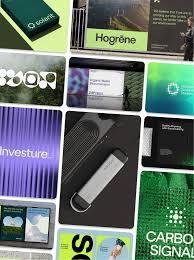Crafting a Successful Renewable Energy Marketing Strategy

In today’s fast-evolving energy landscape, businesses must rethink how they connect with consumers and stakeholders. A strong renewable energy marketing strategy is no longer a luxury; it’s an essential tool for companies striving to stand out in a competitive market while advocating for sustainability. The shift toward renewable energy solutions—solar panels, wind turbines, and energy storage systems—is gaining momentum globally. Consumers are increasingly seeking environmentally responsible options, and businesses need to communicate their value proposition effectively. A well-designed renewable energy marketing strategy helps bridge this gap between technological innovation and market demand.
Understanding Your Audience
A key component of any renewable energy marketing strategy is a deep understanding of your audience. Renewable energy appeals to a diverse range of consumers, from homeowners looking to reduce energy costs to corporations aiming to meet sustainability goals. Each segment requires a unique approach. For residential customers, highlighting long-term savings and environmental impact creates an emotional and practical appeal. For businesses, demonstrating ROI, compliance with regulations, and corporate social responsibility strengthens trust. Conducting thorough market research, including surveys, focus groups, and competitive analysis, allows businesses to develop messaging that resonates with their target audience and addresses their specific concerns and motivations.
Building a Strong Brand Identity
A compelling brand identity is central to a successful renewable energy marketing strategy. Your brand should communicate not just the technical benefits of your products or services but also the broader mission of sustainability and social responsibility. Visual identity, tone of voice, and messaging consistency across all channels foster credibility and recognition. Storytelling plays a critical role here; sharing real-life examples of successful renewable energy projects or customer testimonials humanizes your brand and builds trust. By emphasizing authenticity and transparency, businesses can differentiate themselves from competitors who may rely solely on price or product features.
Leveraging Digital Marketing Channels
In the digital age, a robust online presence is indispensable for any renewable energy marketing strategy. Websites, social media platforms, and content marketing channels serve as primary touchpoints for potential customers. A well-optimized website should educate visitors about renewable energy benefits, provide detailed product information, and offer tools like calculators to demonstrate cost savings. Social media allows companies to engage with audiences, share thought leadership content, and create communities passionate about sustainability. Content marketing, including blogs, videos, and infographics, reinforces expertise while enhancing search engine visibility. Paid advertising, email campaigns, and retargeting strategies further extend reach and nurture leads.
Emphasizing Education and Awareness
Education is a cornerstone of a successful renewable energy marketing strategy. Many consumers remain unfamiliar with renewable energy technologies or perceive them as costly or complex. Providing educational content demystifies the adoption process and positions your brand as a trusted advisor. Hosting webinars, workshops, or community events allows businesses to engage directly with their audience, answer questions, and foster positive associations. Highlighting government incentives, subsidies, or financing options can also reduce perceived barriers, making renewable energy solutions more accessible and appealing. By focusing on education, companies not only drive sales but also promote environmental stewardship.
Strategic Partnerships and Collaborations
Another powerful dimension of an effective renewable energy marketing strategy is leveraging strategic partnerships. Collaborating with other organizations, such as industry associations, NGOs, or complementary technology providers, amplifies marketing efforts and strengthens credibility. Partnerships can open doors to new customer segments, provide co-branding opportunities, and facilitate joint events or campaigns that highlight shared values. For example, partnering with local governments or energy advocacy groups can enhance visibility and demonstrate commitment to community-focused sustainability initiatives. By aligning with trusted organizations, businesses reinforce their reputation as responsible and forward-thinking energy providers.
Measuring Success and Optimizing Campaigns
Implementing a renewable energy marketing strategy is only the first step; measuring its effectiveness is crucial for long-term success. Key performance indicators (KPIs) such as lead generation, website traffic, social engagement, conversion rates, and customer retention provide insights into campaign performance. Analytics tools enable businesses to track these metrics, identify trends, and uncover areas for improvement. Regularly reviewing performance data allows marketers to refine messaging, adjust channel strategies, and optimize budget allocation. A data-driven approach ensures that marketing efforts not only generate awareness but also translate into tangible business outcomes and sustainable growth.
Building Trust Through Sustainability
Trust and credibility are particularly significant in the renewable energy sector. Consumers increasingly scrutinize environmental claims, expecting transparency and accountability. An authentic renewable energy marketing strategy highlights verifiable achievements, such as carbon footprint reduction, energy efficiency certifications, and positive community impact. Demonstrating long-term commitment to sustainability fosters loyalty and advocacy. When customers perceive a company as genuinely invested in environmental responsibility, they are more likely to recommend products, engage with content, and participate in initiatives that extend brand reach.
Future-Proofing Your Strategy
The renewable energy market is dynamic, with technology, policy, and consumer preferences constantly evolving. A successful renewable energy marketing strategy must be adaptable and forward-looking. Staying informed about emerging trends, such as energy storage innovations, smart grid technologies, and decarbonization policies, allows marketers to anticipate customer needs and adjust their campaigns proactively. Regularly revisiting strategy, testing new approaches, and embracing innovation ensure that businesses remain relevant and competitive in a fast-changing market.
Conclusion
Developing an effective renewable energy marketing strategy requires a comprehensive, audience-centered approach that combines education, digital engagement, brand storytelling, and measurable analytics. By focusing on authenticity, strategic partnerships, and adaptability, businesses can not only increase adoption of renewable energy solutions but also strengthen their position as leaders in sustainability. A well-executed marketing strategy ensures that consumers and organizations alike recognize the value, accessibility, and transformative potential of renewable energy, creating lasting impact for both the business and the planet.






